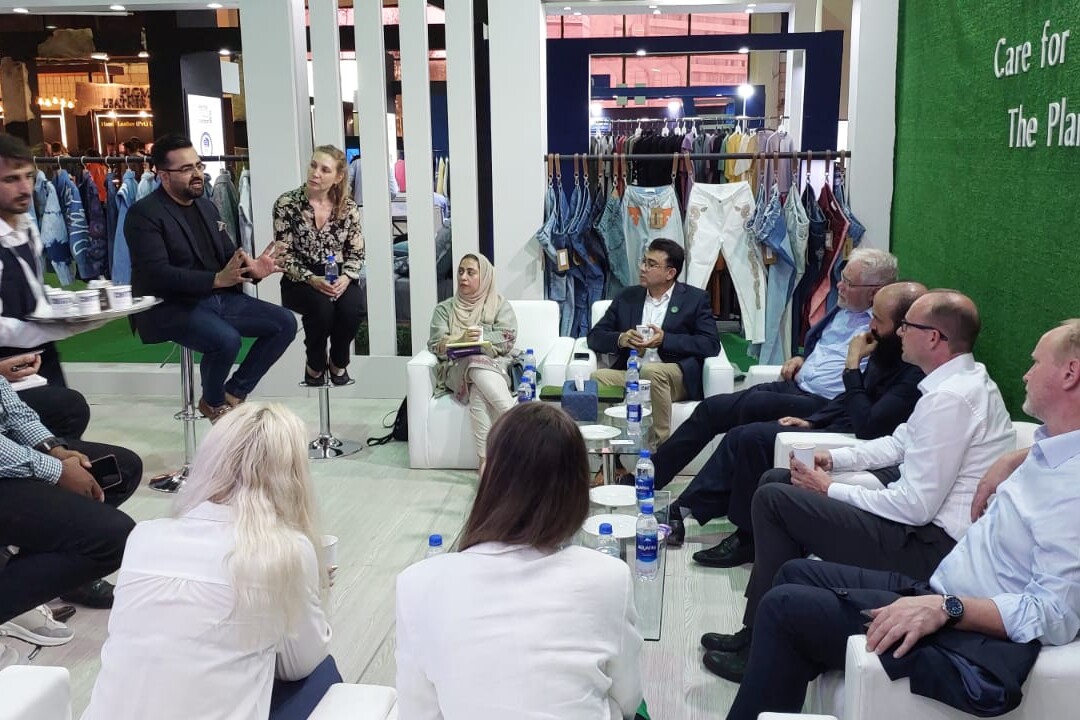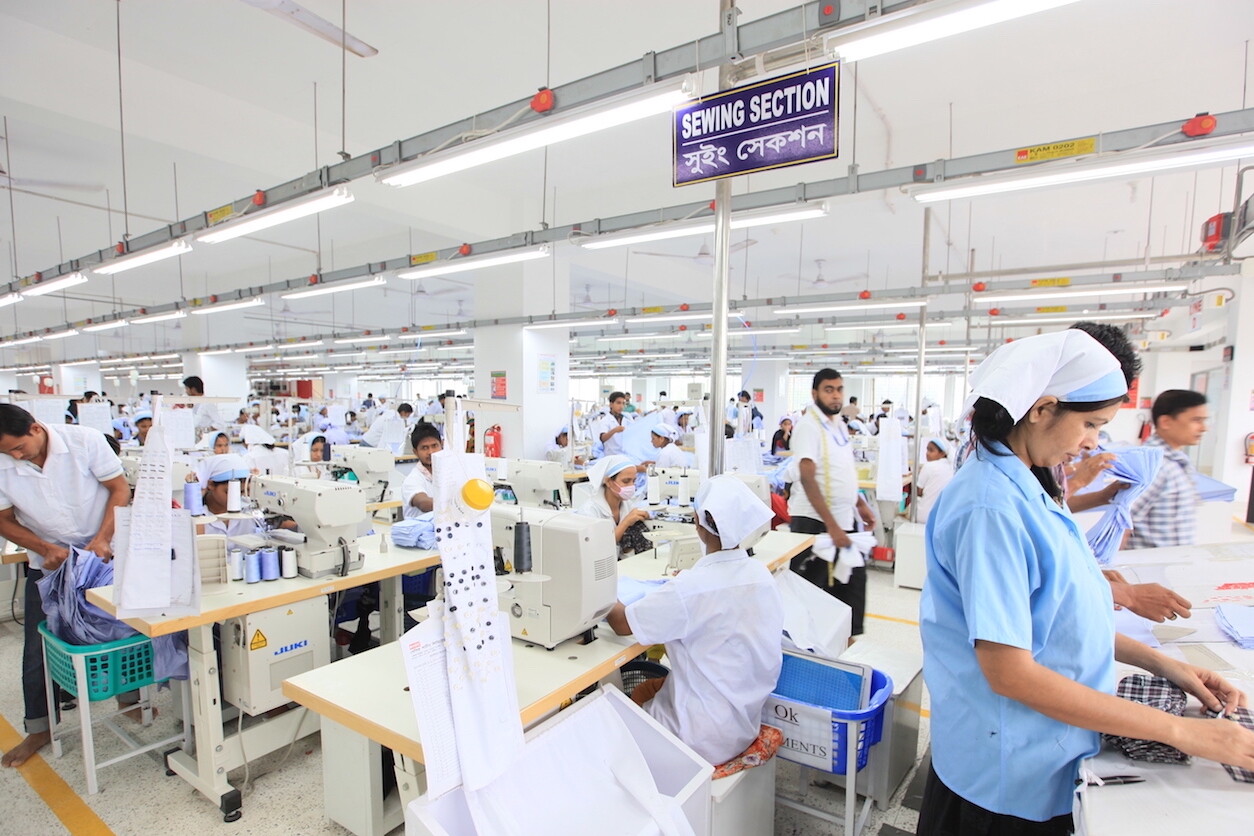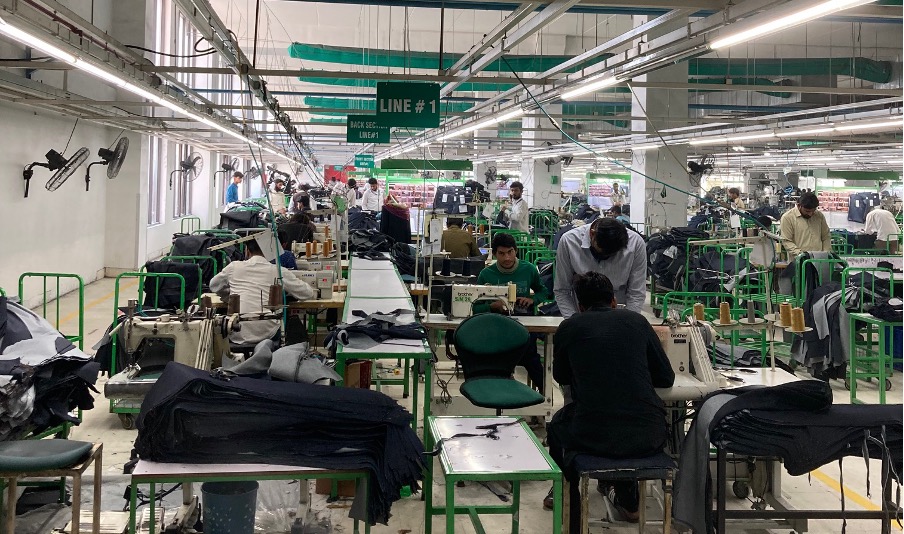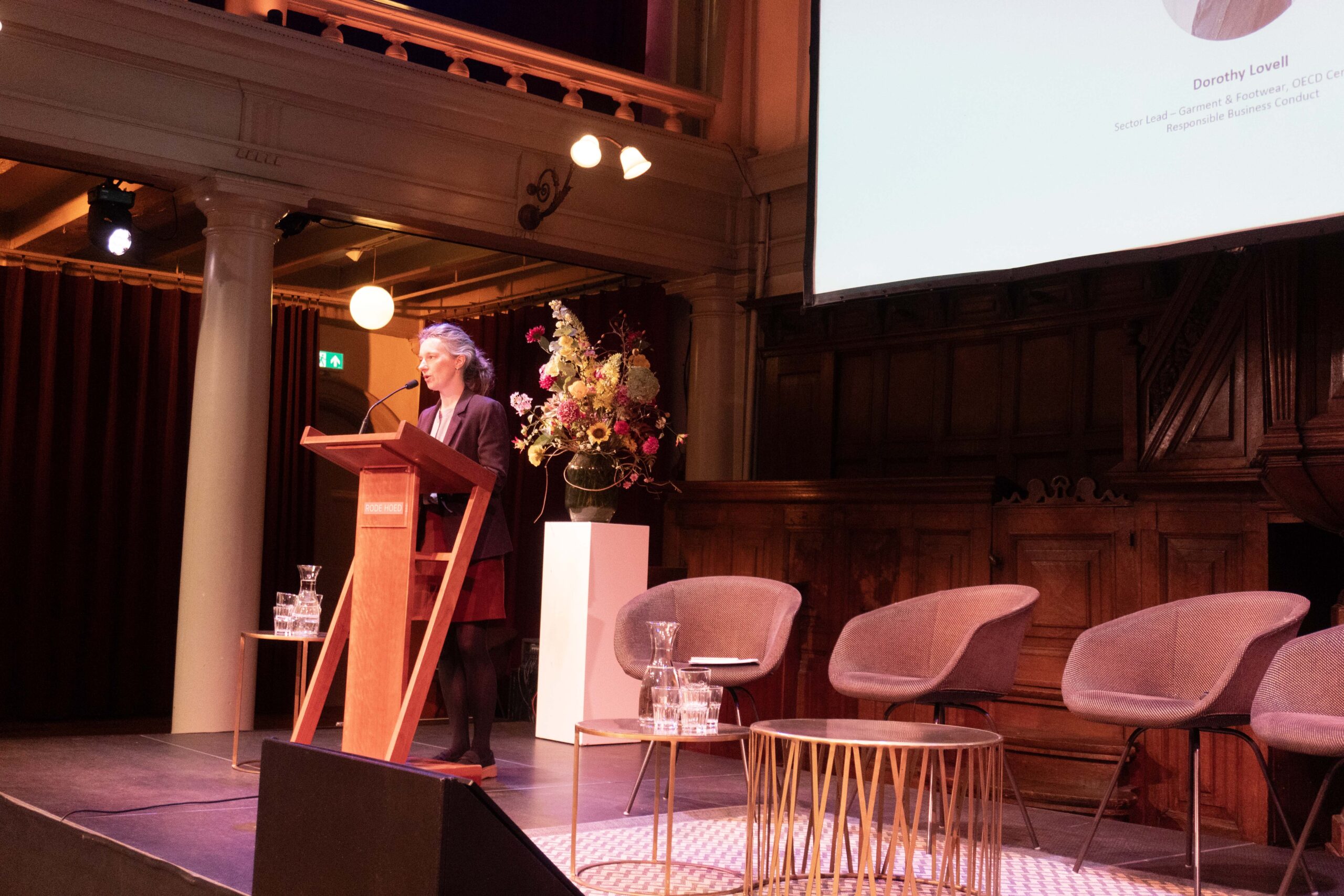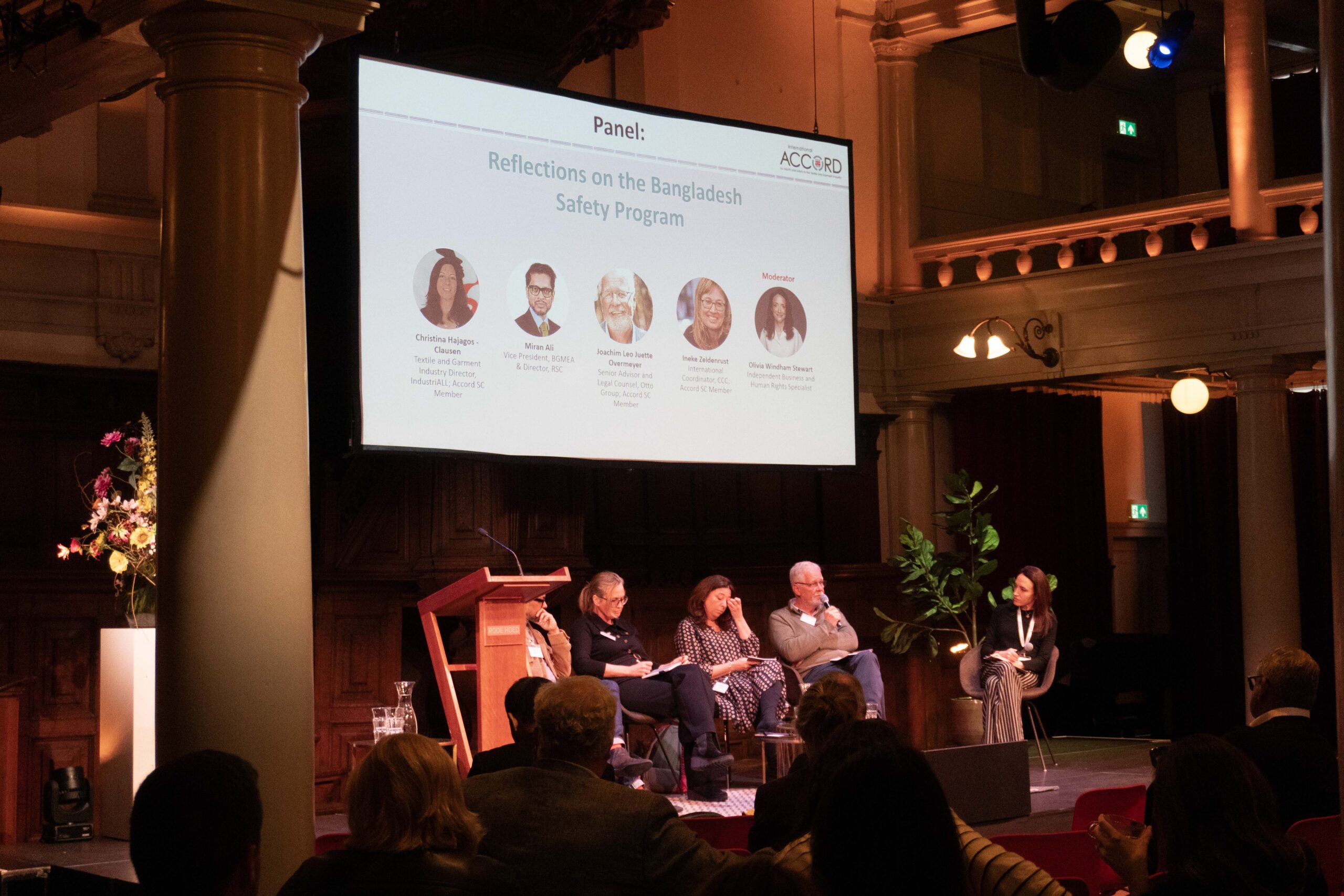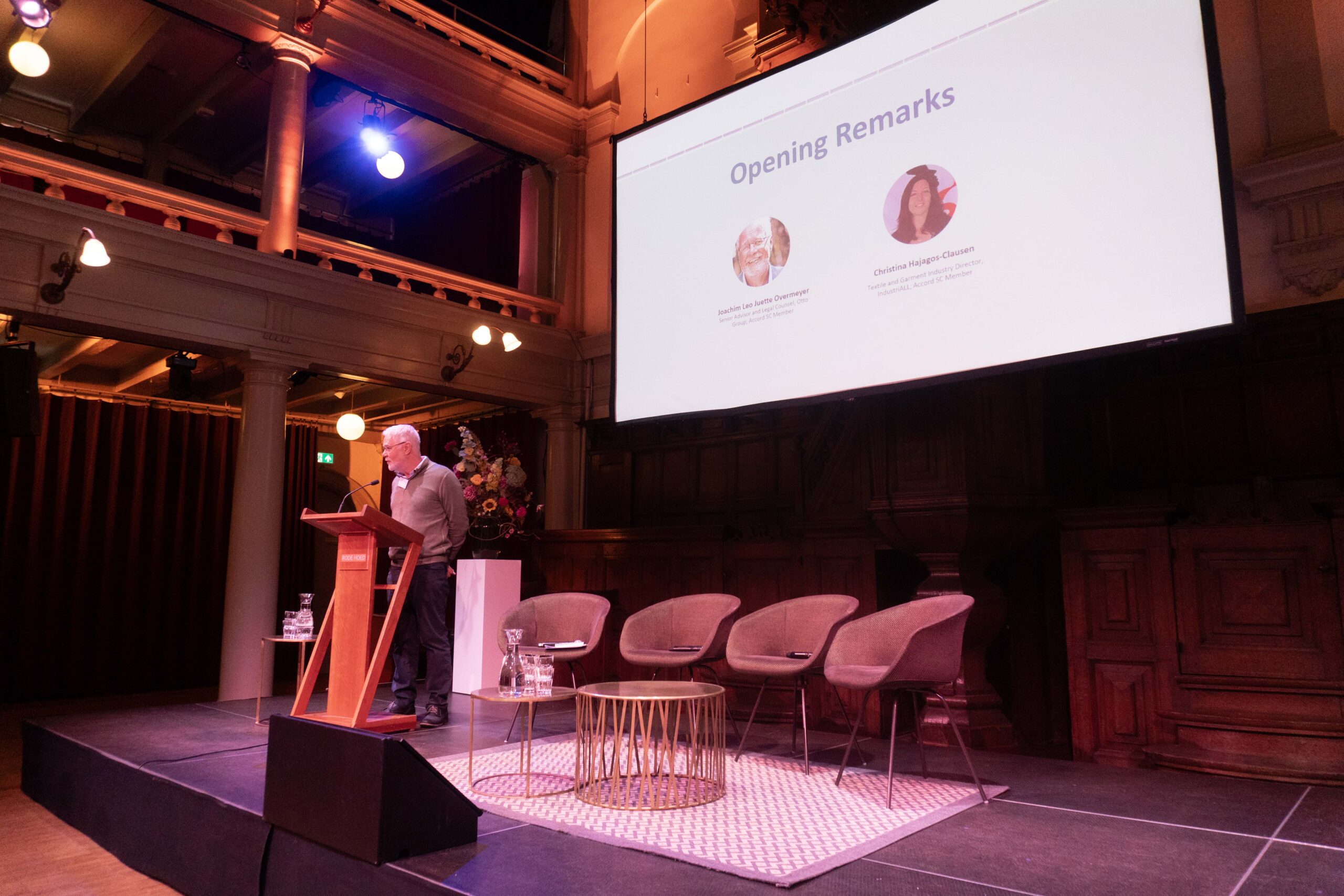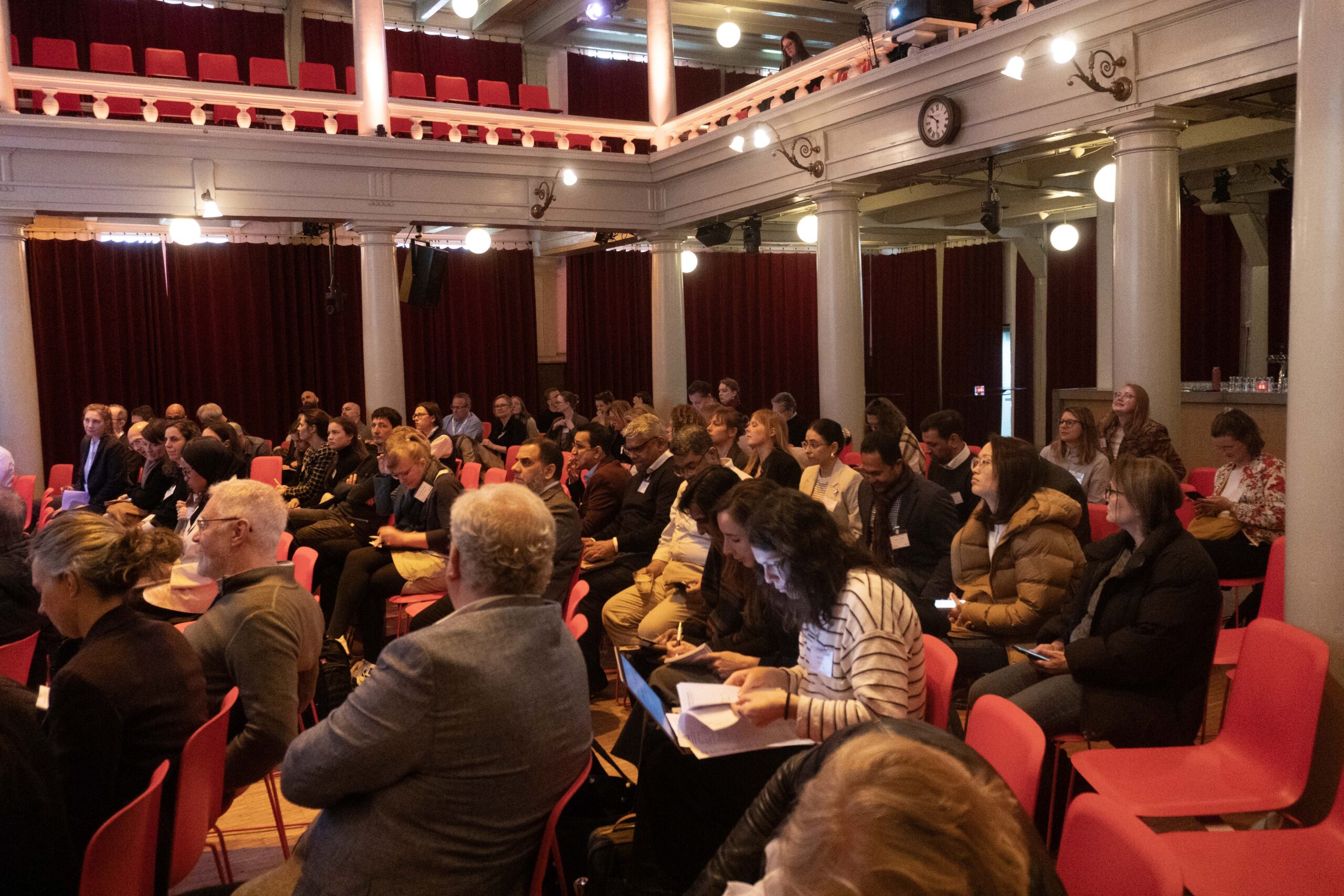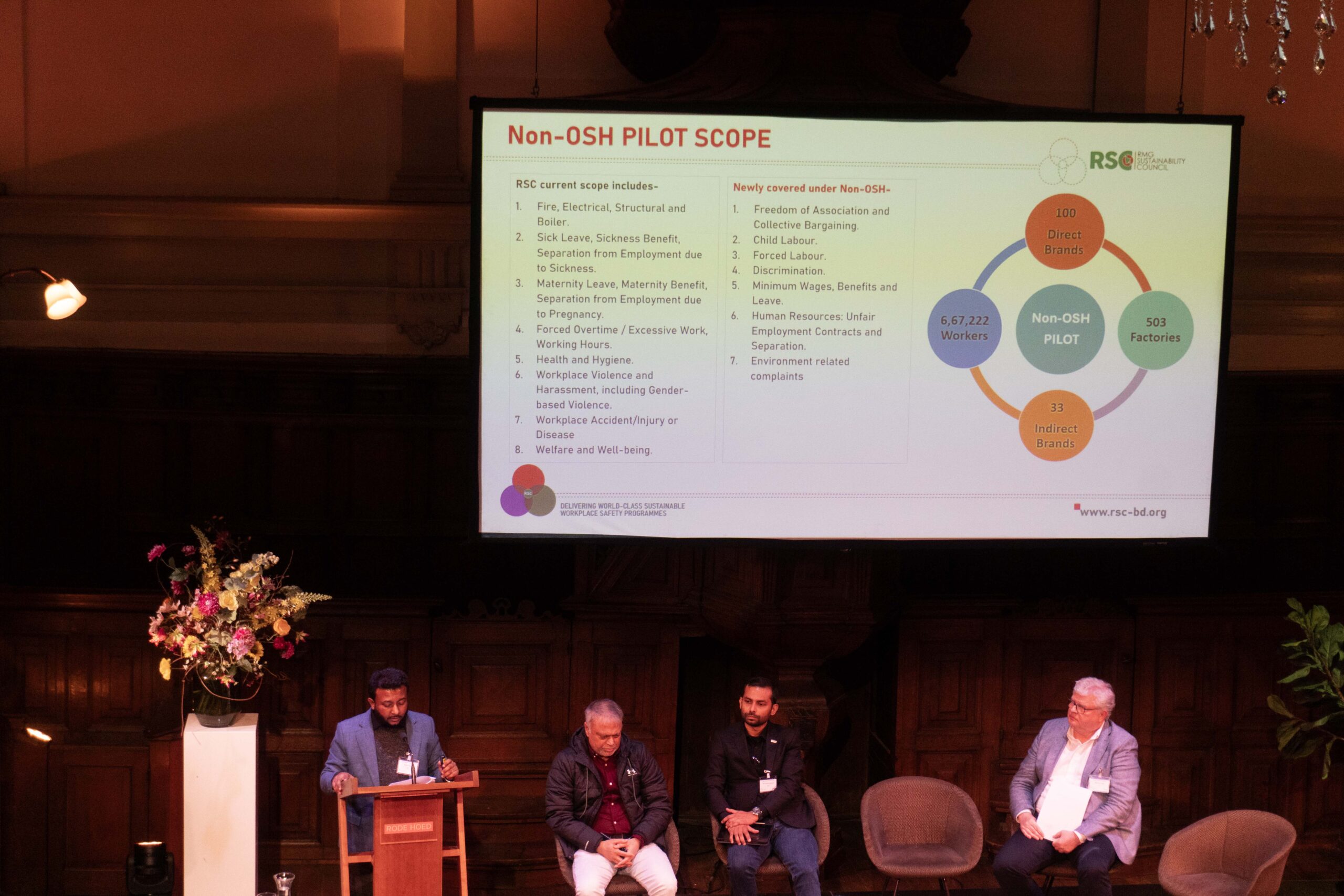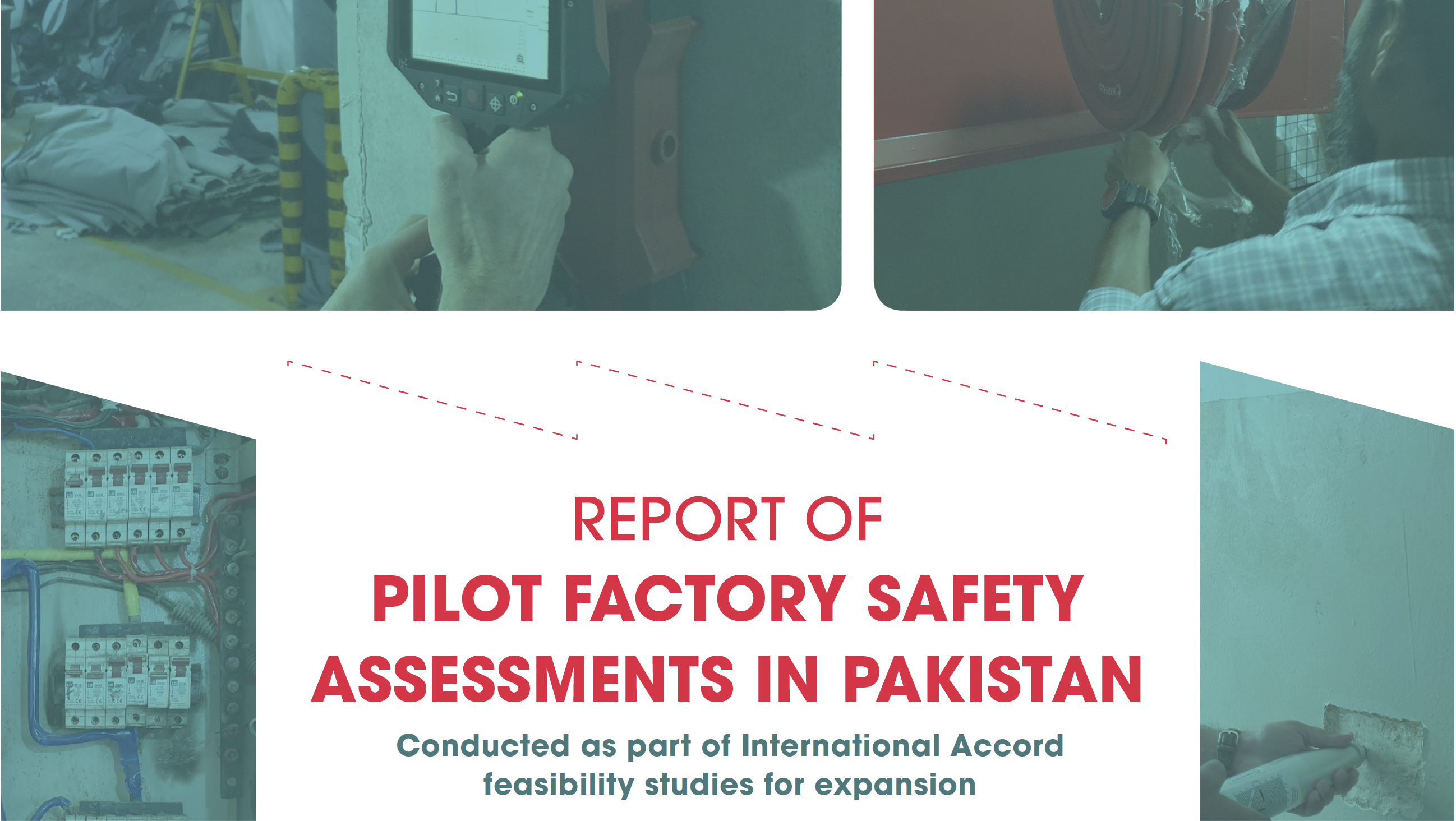International Accord Statement on the Gul Plaza Fire in Karachi
Updates on programs in Bangladesh
We extend our deepest condolences to the victims and families affected by the tragic fire at Gul Plaza in Karachi on 17 January, which has resulted in the tragic loss of at least 21 lives, with several dozen people still reported missing. Our thoughts are with the victims, their families, and all those affected by this horrific incident.
While the official cause of the fire has yet to be confirmed, media reports indicate that a short circuit and inadequate safety arrangements may have contributed to the scale of the disaster. This tragedy once again highlights the urgent and ongoing need for robust fire prevention, building integrity, and life safety measures to prevent the loss of life.
A delegation from the International Accord and the Pakistan Accord met with the Sindh Minister for Labour, Human Resources and Social Protection, Mr. Saeed Ghani, on Monday, 19 January. During the meeting, the delegation reaffirmed the Accord’s commitment to supporting government capacity-building efforts and offered its technical expertise and knowledge gained over more than 12 years of experience in improving workplace safety.
The International Accord is currently implementing a comprehensive fire and building safety program in Pakistan through the Pakistan Accord for Health and Safety in the Textile and Garment Industry. Supported by more than 140 global brands and retailers, the program has inspected over 340 garment and textile factories and continues to work closely with suppliers to address safety risks and ensure necessary remediation.
The Accord remains committed to supporting workers, communities, and industries across Pakistan, and to collaborating with stakeholders to advance meaningful and lasting improvements in safety standards.
For more information, contact:
Related updates
June 13, 2023
A delegation of the International Accord Secretariat and Accord signatory brands had a fruitful visit to Pakistan from 23 May to 3 June 2023.
May 29, 2023
200 global brands and retailers have now signed the International Accord for Health and Safety in the Textile and Garment Industry since it took effect on September 1, 2021.
May 15, 2023
Ten years after the first Accord was signed, the Accord Secretariat reflects on the progress in worker safety in the past decade and our vision for the future.
May 15, 2023
Ten years after the first Accord was signed, the Accord Secretariat reflects on the progress in worker safety in the past decade and our vision for the future.
May 3, 2023
A total of 54 brands and retailers have thus far signed the Pakistan Accord for Health and Safety in the Textile and Garment Industry, with more expected to follow in the coming weeks.
April 24, 2023
The Accord commemorates 10 years since the Rana Plaza collapse by remembering those who perished, those who were injured, and those who continue living with the impacts of one of the worst workplace disasters in modern history.
Factory Inspections to Assess Structural Damage from Bangladesh Earthquake
Updates on programs in Bangladesh
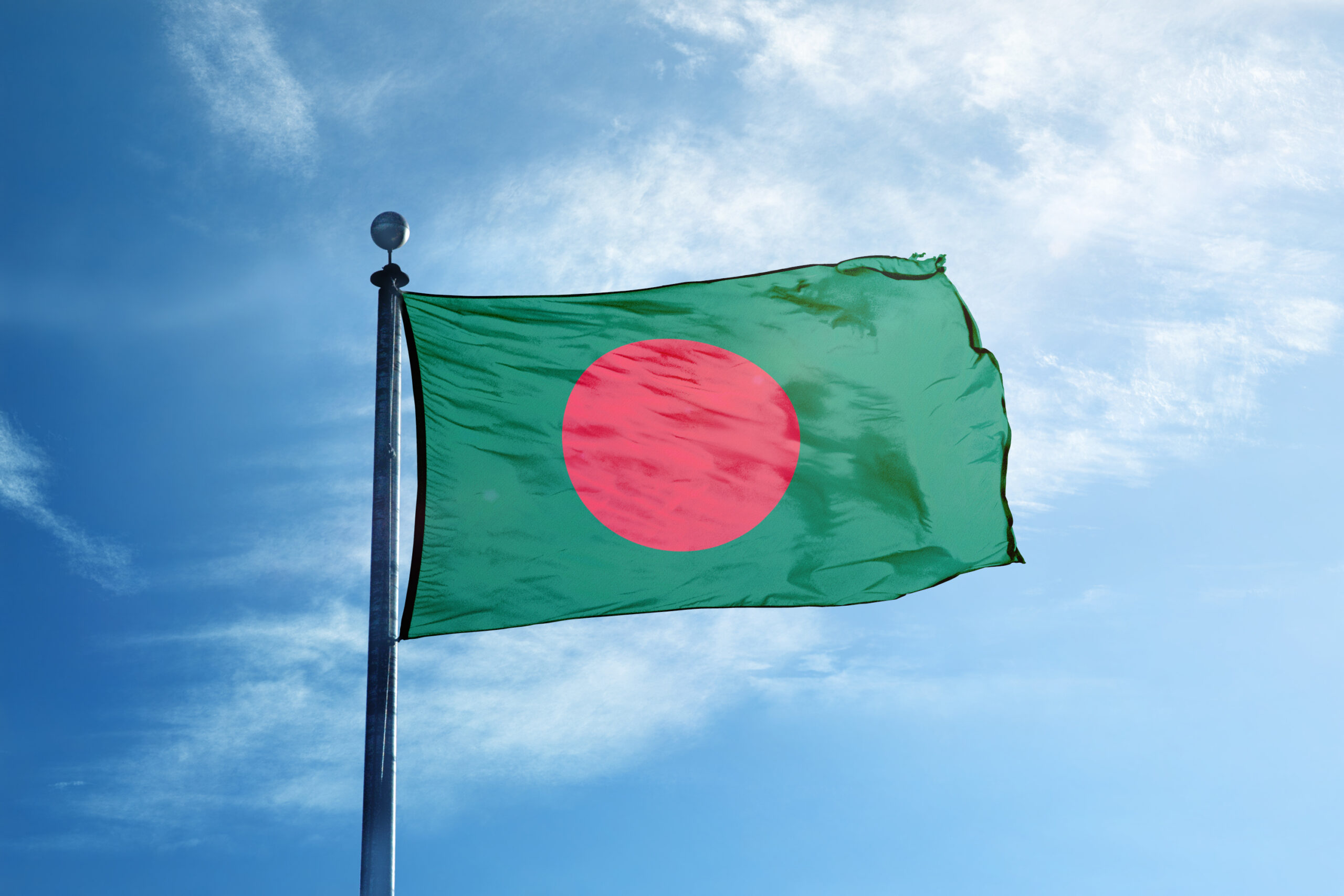
The International Accord is saddened by the earthquake in Bangladesh and concerned about the reported injuries and loss of life. Our thoughts are with all affected individuals and families.
Our engineering colleagues from the RMG Sustainability Council (RSC) are conducting post-incident inspections at Accord and RSC covered factories where cracks, structural damage, or injuries have been reported and will support the necessary remediation efforts. Ensuring workplace safety remains our highest priority.
We reaffirm every worker’s right to refuse unsafe work and will continue supporting signatory brands in fulfilling their commitments to uphold it. We are closely monitoring the situation and conducting detailed assessments to implement effective safety measures as the situation evolves.
For more information, contact:
Related updates
June 13, 2023
A delegation of the International Accord Secretariat and Accord signatory brands had a fruitful visit to Pakistan from 23 May to 3 June 2023.
May 29, 2023
200 global brands and retailers have now signed the International Accord for Health and Safety in the Textile and Garment Industry since it took effect on September 1, 2021.
May 15, 2023
Ten years after the first Accord was signed, the Accord Secretariat reflects on the progress in worker safety in the past decade and our vision for the future.
May 15, 2023
Ten years after the first Accord was signed, the Accord Secretariat reflects on the progress in worker safety in the past decade and our vision for the future.
May 3, 2023
A total of 54 brands and retailers have thus far signed the Pakistan Accord for Health and Safety in the Textile and Garment Industry, with more expected to follow in the coming weeks.
April 24, 2023
The Accord commemorates 10 years since the Rana Plaza collapse by remembering those who perished, those who were injured, and those who continue living with the impacts of one of the worst workplace disasters in modern history.
Statement: Expansion of the Worker Complaints Mechanism in Bangladesh
Updates on programs in Bangladesh
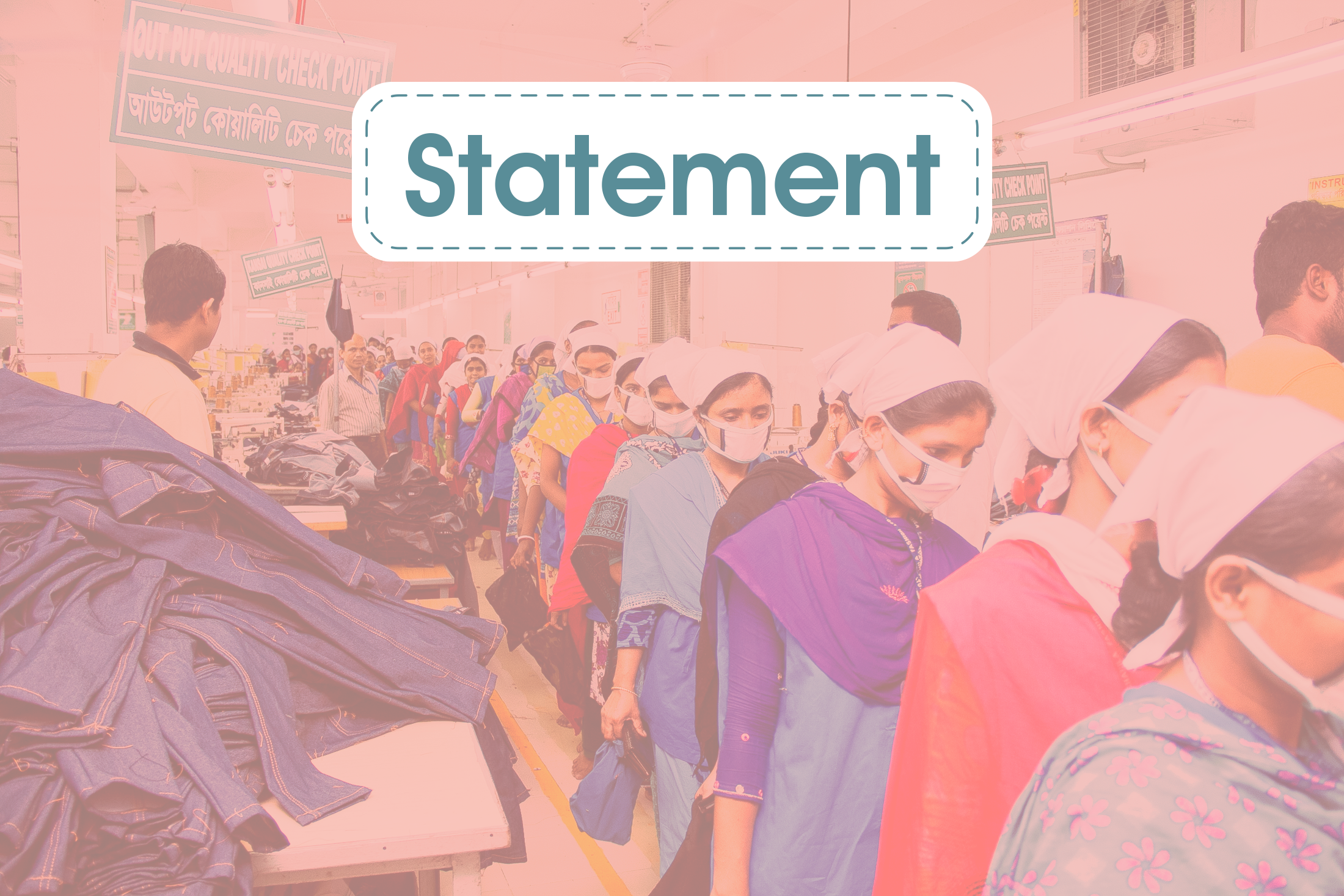
Statement
Amsterdam, 9 November 2025:
The International Accord is pleased to announce that, from mid-November 2025, the Worker Complaints Mechanism in Bangladesh will be expanded to cover issues beyond Occupational Safety and Health (OSH).
Originally established under the 2013 Accord on Fire and Building Safety in Bangladesh, the Complaints Mechanism has been implemented by the Ready-Made Garment (RMG) Sustainability Council (RSC) since June 2020. It is implemented in accordance with the principles enshrined in the International Accord Framework Agreement and its country program, the Bangladesh Safety Agreement.
The Complaints Mechanism has become a trusted and effective channel for workers to raise safety and health concerns confidentially or anonymously. Over 4,000 OSH complaints have been filed to date, reflecting the strong trust workers and their representatives place in it.
Workers have raised various safety and health issues in their complaints including denial of maternity benefits, workplace violence and harassment, denial of sick leave, forced overtime, work-related injuries and fatalities. The Complaints Mechanism has provided a range of remedy including reinstatement, maternity payments and leave, disciplinary action, training, sick leave, measures to help prevent forced overtime and compensation payments for occupational injuries and deaths.
While the Complaints Mechanism has successfully delivered remedy for complaints related to safety and health, Accord signatories and stakeholders recognise that many complaints concern other work-related matters that could not be processed under the existing Complaints Mechanism. They have therefore agreed on the value of a unified Complaints Mechanism that addresses all workplace-related complaints and operates in line with the UN Guiding Principles on Business and Human Rights’ criteria for effective non-judicial grievance mechanisms.
In addition to OSH issues, the expanded Complaints Mechanism will cover the ILO Fundamental Principles and Rights at Work, as well as the most common types of complaints including wage payments, overtime, inequitable employment contracts, and severance benefits.
“The expanded scope of the Complaints Mechanism allows the RSC to address a wider range of workers’ concerns on behalf of Accord signatories. We are encouraged by the trust that workers, factories, signatories, and other stakeholders have placed in the Complaints Mechanism over the years and remain committed, alongside our RSC colleagues, to continue to operate with independence, impartiality, integrity and respect for confidentiality,” said Joris Oldenziel, Executive Director, International Accord.
Implementation will be carried out in phases, starting with over 50 signatory brands and 1,000 factories, to ensure a smooth and effective rollout, and subsequently extended to include all covered factories from May 2026. The International Accord, together with the RSC team, signatory brands, and trade unions, will continue to ensure that the Complaints Mechanism remains an accessible and trusted complaints channel for workers.
We extend our appreciation to the RSC Complaints Team for their tireless dedication in operating the Complaints Mechanism, investigating complaints, and delivering timely remedy to workers across covered factories.
We are also grateful to all parties involved, including Accord signatories, trade unions, industry partners, and civil society organisations, for their ongoing collaboration and commitment, which helps to ensure that the Complaints Mechanism continues to operate independently and effectively.
END
Resources
For more information, contact:
Related updates
June 13, 2023
A delegation of the International Accord Secretariat and Accord signatory brands had a fruitful visit to Pakistan from 23 May to 3 June 2023.
May 29, 2023
200 global brands and retailers have now signed the International Accord for Health and Safety in the Textile and Garment Industry since it took effect on September 1, 2021.
May 15, 2023
Ten years after the first Accord was signed, the Accord Secretariat reflects on the progress in worker safety in the past decade and our vision for the future.
May 15, 2023
Ten years after the first Accord was signed, the Accord Secretariat reflects on the progress in worker safety in the past decade and our vision for the future.
May 3, 2023
A total of 54 brands and retailers have thus far signed the Pakistan Accord for Health and Safety in the Textile and Garment Industry, with more expected to follow in the coming weeks.
April 24, 2023
The Accord commemorates 10 years since the Rana Plaza collapse by remembering those who perished, those who were injured, and those who continue living with the impacts of one of the worst workplace disasters in modern history.
Accord Offers Condolences to the Victims of the Mirpur Factory Fire
Updates on programs in Bangladesh
The International Accord is deeply saddened by the tragic fire at a garment factory and chemical warehouse in the Shialbari area of Mirpur, Dhaka, which has claimed at least 16 lives and injured many others. Our heartfelt condolences go out to the victims, their families, and all those affected.
This tragedy is a stark reminder of the devastating human cost of inadequate safety measures. Safe exits, unlocked gates, functioning alarms, effective fire separation, and strong emergency preparedness are essential for the safety of every worker, within and beyond the garment industry.
To our knowledge, the affected establishments are not listed by company signatories of the Bangladesh Safety Agreement and not covered by the inspections and remediation program implemented by the RMG Sustainability Council (RSC) in Bangladesh. Nonetheless, this incident underscores the urgent need for comprehensive health and safety measures across all industries.
For over a decade, the collective efforts of brands, trade unions, factories, and civil society partners under the Accord have contributed to workplace health and safety improvements at covered garment and textile factories in Bangladesh. While this includes over 2000 factories employing 2.5 million workers, it represents only part of the Bangladesh’s RMG sector.
Ensuring that every worker has access to a safe working environment must remain a shared priority and responsibility. The Accord and the RSC reaffirm their dedication to working with global brands, industry partners, worker representatives and government authorities to build and maintain a culture of health and safety that prevents such tragedies within the RMG sector in Bangladesh.
The Accord will, together with our colleagues from the RSC, continue to monitor the situation at the affected area and any potential impact on surrounding factories.
END
For more information, contact:
- media@internationalaccord.org
- Mini Dixit, Communications Advisor: mini.dixit@internationalaccord.org
Related updates
June 13, 2023
A delegation of the International Accord Secretariat and Accord signatory brands had a fruitful visit to Pakistan from 23 May to 3 June 2023.
May 29, 2023
200 global brands and retailers have now signed the International Accord for Health and Safety in the Textile and Garment Industry since it took effect on September 1, 2021.
May 15, 2023
Ten years after the first Accord was signed, the Accord Secretariat reflects on the progress in worker safety in the past decade and our vision for the future.
May 15, 2023
Ten years after the first Accord was signed, the Accord Secretariat reflects on the progress in worker safety in the past decade and our vision for the future.
May 3, 2023
A total of 54 brands and retailers have thus far signed the Pakistan Accord for Health and Safety in the Textile and Garment Industry, with more expected to follow in the coming weeks.
April 24, 2023
The Accord commemorates 10 years since the Rana Plaza collapse by remembering those who perished, those who were injured, and those who continue living with the impacts of one of the worst workplace disasters in modern history.
International Accord Statement on the Political Situation in Bangladesh
Updates on programs in Bangladesh

Statement
Amsterdam, 8 August 2024:
In view of the complex political situation in Bangladesh, the International Accord makes the following statement in solidarity with the people of Bangladesh.
The International Accord is deeply concerned about the breakdown in law and order and the ensuing violence in Bangladesh and its impact on the two million workers in Accord-covered factories and our partners in the RMG industry.
It is not possible at this stage to assess the impact current events will have on the RMG industry given the rapidly changing situation. In these uncertain times, the International Accord calls on all signatories of the Bangladesh Safety Agreement[1] to stand by their Bangladeshi industry partners with patience in order to support the economic future of the country.
We urge all signatories to:
- Uphold the letter and the spirit of the commitments made to maintain a long-term sourcing relationship with Bangladesh.
- Actively engage with your suppliers to work together and address challenges related to production targets, order deliveries and the safety and health of workers.
- Continue supporting the RMG Sustainability Council (RSC) throughout this challenging period.
In addition, we have also learnt of, as yet unverified, reports of vandalism and fires at some RMG factories in Bangladesh. Any safety incidents at covered factories will be investigated by the RSC in accordance with their operating procedures, to the extent possible under the circumstances.
The International Accord will work to the best of its ability, together with colleagues from the RSC, Accord brands, trade unions, witness signatories and industry, to provide ongoing support and ensure that commitments made on safety and health protections are upheld. These include upholding the right to refuse unsafe work, maintaining regular income during any period a factory is closed for safety reasons, and avoiding excessive working hours to make up for production delays.
The International Accord hopes that Bangladesh quickly returns to a state of political and social stability and that we can continue our collective journey towards a safe and sustainable RMG industry in Bangladesh.
Our thoughts and prayers are with the people of Bangladesh.
[1] The Bangladesh Safety Agreement is a Country-Specific Safety Program that is an addendum to the International Accord framework agreement and has been signed by 201 garment brands and retailers.
END
For more information, contact:
- media@internationalaccord.org
- Mini Dixit, Communications Advisor: mini.dixit@internationalaccord.org
Related updates
June 13, 2023
A delegation of the International Accord Secretariat and Accord signatory brands had a fruitful visit to Pakistan from 23 May to 3 June 2023.
May 29, 2023
200 global brands and retailers have now signed the International Accord for Health and Safety in the Textile and Garment Industry since it took effect on September 1, 2021.
May 15, 2023
Ten years after the first Accord was signed, the Accord Secretariat reflects on the progress in worker safety in the past decade and our vision for the future.
May 15, 2023
Ten years after the first Accord was signed, the Accord Secretariat reflects on the progress in worker safety in the past decade and our vision for the future.
May 3, 2023
A total of 54 brands and retailers have thus far signed the Pakistan Accord for Health and Safety in the Textile and Garment Industry, with more expected to follow in the coming weeks.
April 24, 2023
The Accord commemorates 10 years since the Rana Plaza collapse by remembering those who perished, those who were injured, and those who continue living with the impacts of one of the worst workplace disasters in modern history.
Day 1 Recap: Accord All Signatory Meeting 2024
Updates on programs in Bangladesh
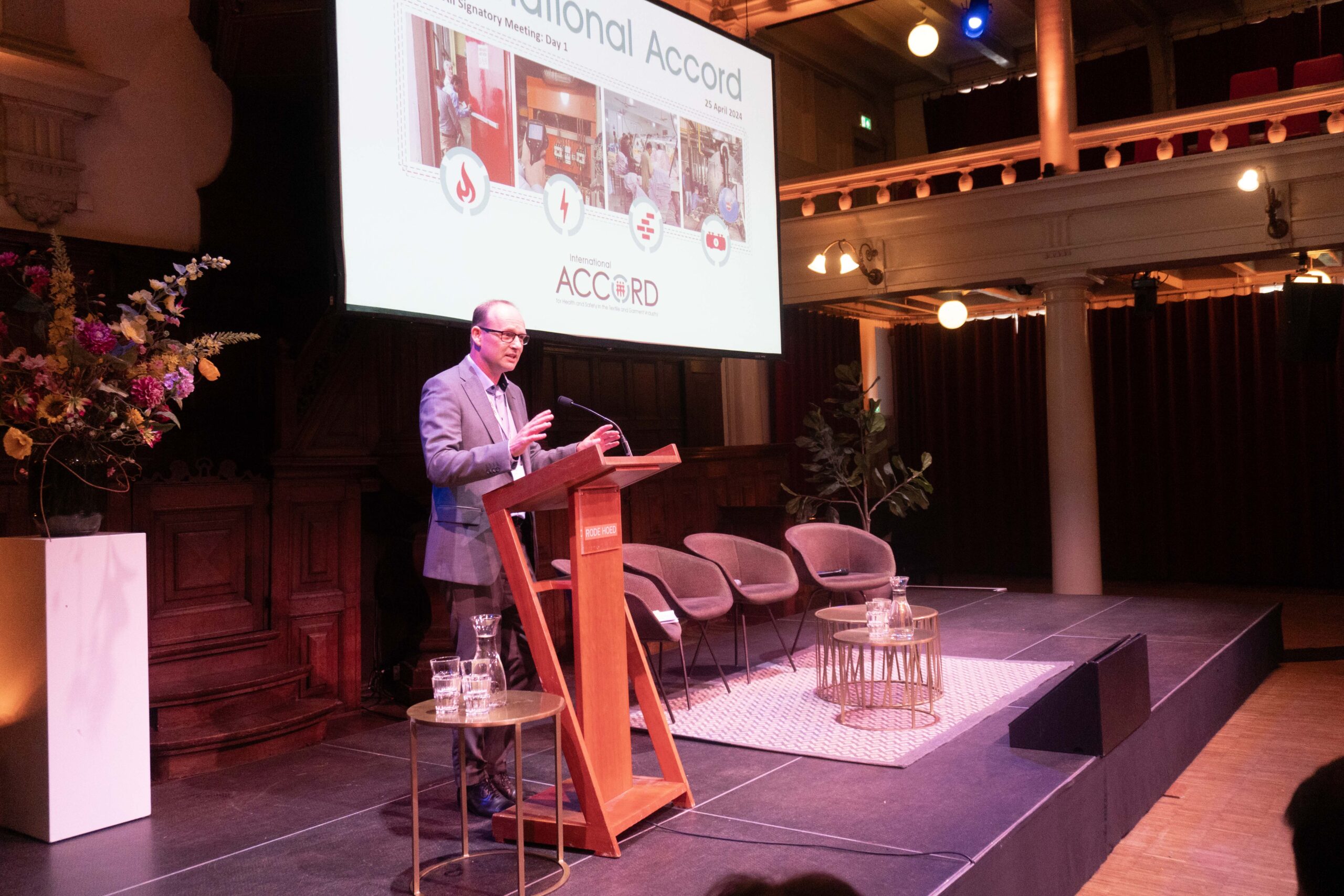
The International Accord held its All Signatory Meeting 2024 on the 25 and 26 of April 2024 at the Rode Hoed in Amsterdam, the Netherlands. The purpose of the event was to update participants about the key developments on the operations and implementation of the Accord’s Country-Specific Safety Programs (CSSPs) in Bangladesh and Pakistan.
25 April marked the first day of the All-Signatory Meeting in Amsterdam, where our brand, trade union, and NGO signatories came together to discuss the progress and way ahead on the International Accord and the Bangladesh Safety Agreement.
Set against the background of the 11th anniversary of the Rana Plaza collapse on 24 April, the day started with remarks by Christina Hajagos-Clausen (IndustriALL Global Union) and Joachim Juette-Overmeyer (Otto Group).
Dorothy Lovell (Sector Lead – Garment & Footwear, OECD Centre for Responsible Business Conduct), in her keynote address, underscored the Accord’s role as a flagship initiative that translates the OECD’s Due Diligence Guidance into action. She described it as a tool for accountability and an example of how due diligence creates impactful change by preventing harm, improving lives, and ensuring business continuity. Lovell added:
“…when brands jointly invest in the conditions for decent work in their supply chain, there are results, and those results are good for workers and business.”
The day included updates on the International Accord’s operations by Joris Oldenziel and Koen Oosterom.
Veronique Camerer and Kristine Drew conducted a session that encouraged brands to share their perspectives and insights on the steps they take to fulfill their obligations on financing remediation and the Accord’s workplace programs.
The RMG Sustainability Council (RSC)’s Abdul Haque, Shah Sefat Uddin Ahmed and Md Hassan Nawazis shared a comprehensive presentation on the remediation progress in Bangladesh, highlighting key developments such as the expansion of the complaints mechanism and the envisioned environmental program.
The final session comprised reflections on the Bangladesh Safety Program by Miran Ali (BGMEA), Ineke Zeldenrust (Clean Clothes Campaign), Christina Hajagos-Clausen, and Joachim Juette-Overmeyer, followed by concluding remarks delivered by PVH Corp.’s Michael Bride.
We thank all attendees for their participation, and Olivia Windham Stewart for moderating the sessions. We are also grateful to our venue partners, the Amerpodia team for their organisational support on this event.
For more information, contact:
- media@internationalaccord.org
- Mini Dixit, Communications Advisor: mini.dixit@internationalaccord.org
Related updates
June 13, 2023
A delegation of the International Accord Secretariat and Accord signatory brands had a fruitful visit to Pakistan from 23 May to 3 June 2023.
May 29, 2023
200 global brands and retailers have now signed the International Accord for Health and Safety in the Textile and Garment Industry since it took effect on September 1, 2021.
May 15, 2023
Ten years after the first Accord was signed, the Accord Secretariat reflects on the progress in worker safety in the past decade and our vision for the future.
May 15, 2023
Ten years after the first Accord was signed, the Accord Secretariat reflects on the progress in worker safety in the past decade and our vision for the future.
May 3, 2023
A total of 54 brands and retailers have thus far signed the Pakistan Accord for Health and Safety in the Textile and Garment Industry, with more expected to follow in the coming weeks.
April 24, 2023
The Accord commemorates 10 years since the Rana Plaza collapse by remembering those who perished, those who were injured, and those who continue living with the impacts of one of the worst workplace disasters in modern history.
11 years since the Rana Plaza collapse in Bangladesh
Updates on programs in Bangladesh
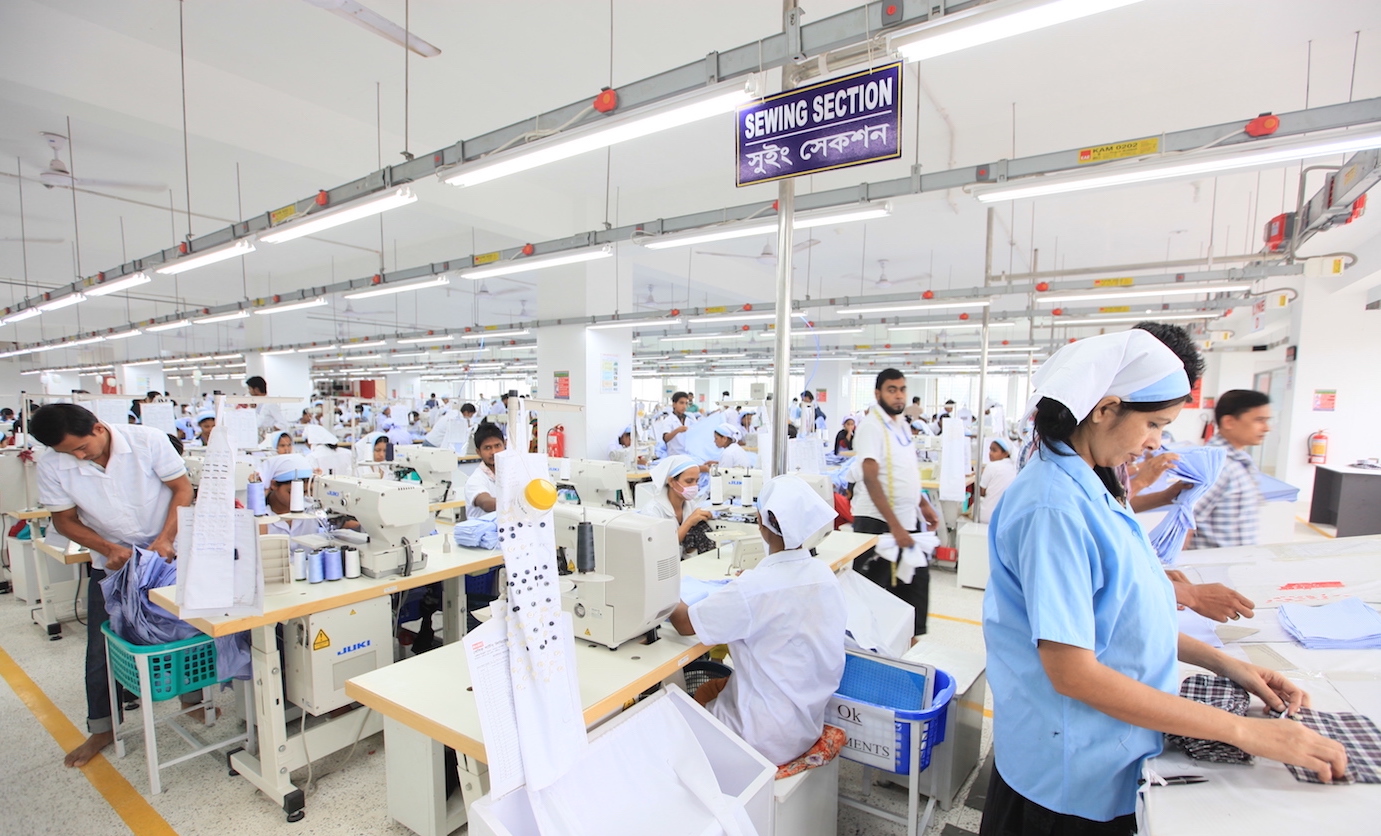
Today marks the 11th anniversary of the tragic collapse of the Rana Plaza building in Dhaka, Bangladesh, which claimed the lives of over 1,100 garment workers and left thousands critically injured. On this solemn anniversary, the Accord pays tribute to the victims, the survivors, and those enduring the impact of one of the most devastating workplace disasters in modern history.
Alongside our signatories and stakeholders, the Accord remains committed to ensuring that garment factory workers are safeguarded with a safe and healthy work environment as a fundamental principle and right at work.
We urge more brands to join us in this effort by signing the Accord and putting worker safety at the core of their garment supply chains.
For more information, contact:
- media@internationalaccord.org
- Mini Dixit, Communications Officer: mini.dixit@internationalaccord.org
Related updates
June 13, 2023
A delegation of the International Accord Secretariat and Accord signatory brands had a fruitful visit to Pakistan from 23 May to 3 June 2023.
May 29, 2023
200 global brands and retailers have now signed the International Accord for Health and Safety in the Textile and Garment Industry since it took effect on September 1, 2021.
May 15, 2023
Ten years after the first Accord was signed, the Accord Secretariat reflects on the progress in worker safety in the past decade and our vision for the future.
May 15, 2023
Ten years after the first Accord was signed, the Accord Secretariat reflects on the progress in worker safety in the past decade and our vision for the future.
May 3, 2023
A total of 54 brands and retailers have thus far signed the Pakistan Accord for Health and Safety in the Textile and Garment Industry, with more expected to follow in the coming weeks.
April 24, 2023
The Accord commemorates 10 years since the Rana Plaza collapse by remembering those who perished, those who were injured, and those who continue living with the impacts of one of the worst workplace disasters in modern history.
Over 100 brands sign the Bangladesh Safety Agreement
Updates on programs in Bangladesh
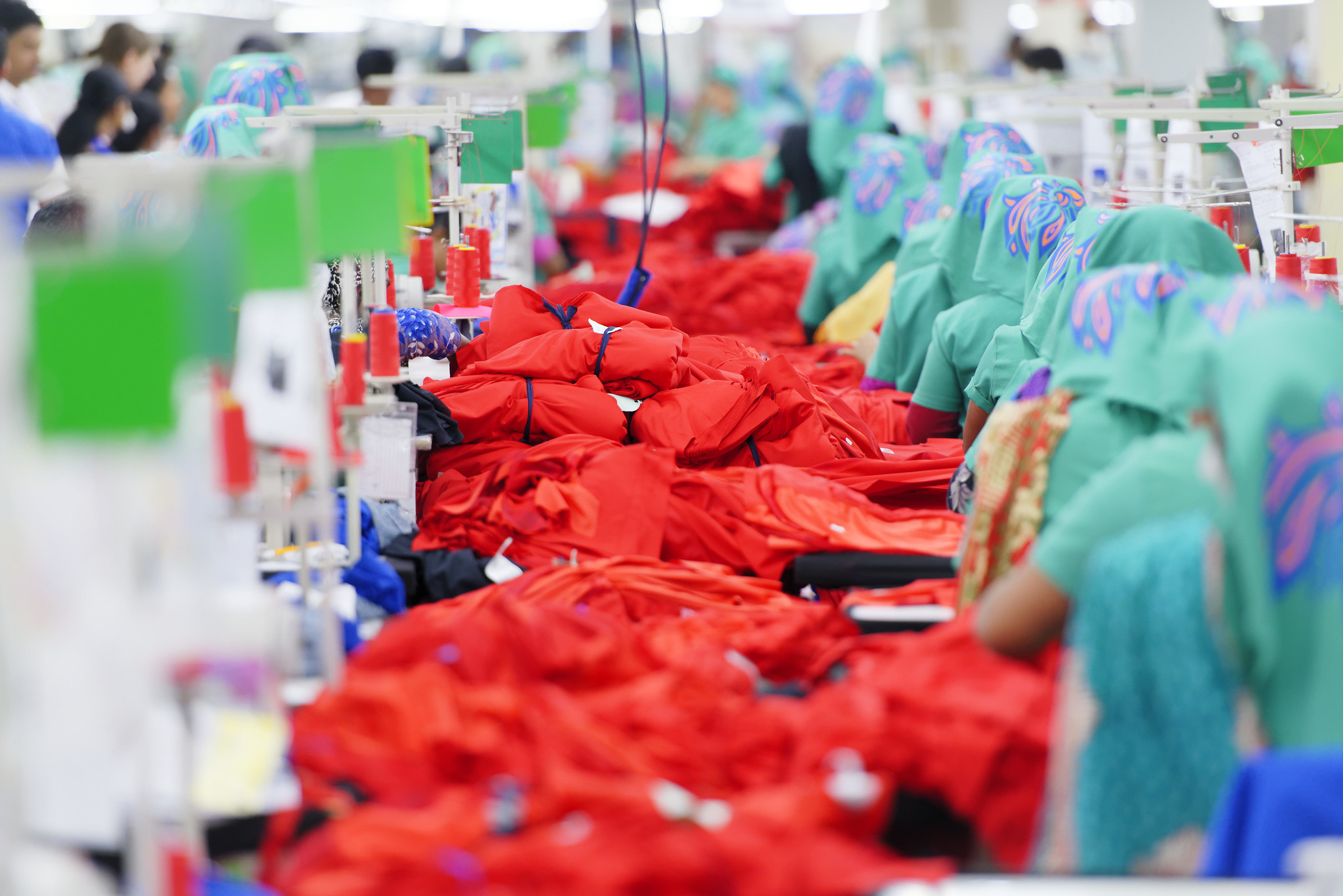
A total of 102 global brands and retailers have so far signed the Bangladesh Safety Agreement with Fast Retailing Co. Ltd, River Island and Triumph & Sloggi, among the latest signatories.
The Bangladesh Safety Agreement took effect as an Addendum to the renewed International Accord on 1 November 2023. Signatory parties to Bangladesh Safety Program commit to the principles enshrined in the 2023 International Accord, and as stipulated in the 2013, 2018 and the 2021 Accord agreements on Fire and Building Safety in Bangladesh.
The inspections and remediation program, safety committee and safety training program, complaints mechanism, and reporting and disclosure requirements of the Accord are implemented in Bangladesh by the RMG Sustainability Council (RSC), which was established in June 2020.
We extend an invitation to all garment and textile brands sourcing from Bangladesh to sign the Bangladesh Safety Agreement and contribute to enhancing health and safety within the textile and garment industry.
Resources:
Related updates
June 13, 2023
A delegation of the International Accord Secretariat and Accord signatory brands had a fruitful visit to Pakistan from 23 May to 3 June 2023.
May 29, 2023
200 global brands and retailers have now signed the International Accord for Health and Safety in the Textile and Garment Industry since it took effect on September 1, 2021.
May 15, 2023
Ten years after the first Accord was signed, the Accord Secretariat reflects on the progress in worker safety in the past decade and our vision for the future.
May 15, 2023
Ten years after the first Accord was signed, the Accord Secretariat reflects on the progress in worker safety in the past decade and our vision for the future.
May 3, 2023
A total of 54 brands and retailers have thus far signed the Pakistan Accord for Health and Safety in the Textile and Garment Industry, with more expected to follow in the coming weeks.
April 24, 2023
The Accord commemorates 10 years since the Rana Plaza collapse by remembering those who perished, those who were injured, and those who continue living with the impacts of one of the worst workplace disasters in modern history.
Agreement on International Accord Framework for Health and Safety Programs
Global brands and trade unions have renewed the International Accord to enhance health and safety in supply chains in Bangladesh, Pakistan, and other countries in the future.
Statement
Amsterdam, 6 November 2023 [updated on 20 November]:
Negotiations between representatives of international textile retailers and the global trade union signatories to the International Accord on Health and Safety in the Textile and Garment Industry have culminated in an agreement that reaffirms their commitment to enhancing health and safety throughout the supply chains of the brand signatories.
Brands and trade unions have renewed their commitments for an extended three-year term, with an automatic renewal of another three years making it the longest Accord commitment to date.
This new iteration of the International Accord takes effect on 1 November 2023.
This enduring commitment reflects the conviction of the brand and trade union signatories in the Accord’s impact on workplace health and safety through independent factory inspections, remediation, safety training, and an effective worker complaints mechanism.
The renewed International Accord is a legally binding framework agreement under which Country-Specific Safety Programs (CSSPs) will be implemented in Pakistan and through the RMG Sustainability Council (RSC) in Bangladesh, with the provision to develop future health and safety programs in other major garment-producing countries based on feasibility and expansion criteria.
Key new features of the International Accord framework include:
- An international framework:
(a) committing to expanding the health and safety work progressively in the coming years to other countries, based on feasibility studies and successful progress made in the existing country programs;
(b) considering a future expansion of the scope of the worker complaints mechanism beyond health and safety in CSSPs; and
(c) outlining the key signatory obligations and principles upon which country programs will be built. The details of the country programs will be outlined in Addendums to the International Accord agreement.- Participating brands shall sign both the International Accord framework agreement and the relevant CSSP agreements they choose to participate in.
- The Pakistan Accord for Health and Safety in the Textile and Garment Industry (Pakistan Accord), which was signed in January 2023, will continue as an Addendum to the International Accord.
Negotiations for the new Bangladesh CSSP agreement concluded on 6 November. This agreement will continue the signatories’ commitments to the health and safety program in Bangladesh through the RSC as stipulated in a separate Bangladesh Safety Agreement available to read here.
The new International Accord will continue to build on the strong principles and approach that made the Accord effective. This includes factory inspections and remediation, safety training, worker awareness programs, a credible independent worker complaints mechanism, respect for freedom of association, independent administration and implementation, a high level of transparency, and provisions ensuring financially feasible remediation.
The International Accord Secretariat will support signatories in implementing the agreement and monitor signatory compliance with the International Accord agreement and its country Addendums.
Brands and retailers will be invited to sign the International Accord and the Bangladesh agreement from 20 November onwards. Brands sourcing from Pakistan that have not signed the Pakistan Accord yet are encouraged to sign as soon as possible.
The Accord encourages all garment and textile companies to sign this renewed framework agreement and join our collective goal of safe and sustainable textile and garment industry.
The International Accord Secretariat will announce the initial signatories to the International Accord and the Bangladesh program in the first week of December 2023.
Download the full text of the International Accord here.
For more information, contact:
- media@internationalaccord.org
- Mini Dixit, Communications Advisor: mini.dixit@internationalaccord.org
Related updates
June 13, 2023
A delegation of the International Accord Secretariat and Accord signatory brands had a fruitful visit to Pakistan from 23 May to 3 June 2023.
May 29, 2023
200 global brands and retailers have now signed the International Accord for Health and Safety in the Textile and Garment Industry since it took effect on September 1, 2021.
May 15, 2023
Ten years after the first Accord was signed, the Accord Secretariat reflects on the progress in worker safety in the past decade and our vision for the future.
May 15, 2023
Ten years after the first Accord was signed, the Accord Secretariat reflects on the progress in worker safety in the past decade and our vision for the future.
May 3, 2023
A total of 54 brands and retailers have thus far signed the Pakistan Accord for Health and Safety in the Textile and Garment Industry, with more expected to follow in the coming weeks.
April 24, 2023
The Accord commemorates 10 years since the Rana Plaza collapse by remembering those who perished, those who were injured, and those who continue living with the impacts of one of the worst workplace disasters in modern history.
Report of the Accord pilot safety assessments in Pakistan
The pilot safety assessments were initiated in September 2022 to establish an effective safety inspection and remediation program in Pakistan.
The pilot safety assessments were initiated in September 2022 to establish an effective safety inspection and remediation program in Pakistan.
The International Accord is pleased to announce the publication of a report on the pilot safety assessments conducted with factories in Pakistan over the last 8 months.
The International Accord pilot was initiated in September 2022 with the goal of understanding the key considerations for establishing an effective safety inspection and remediation program with garment and textile suppliers in Pakistan. The main objectives of the pilot were:
- To gain first-hand information on safety conditions in different types of factories.
- To identify the common remediation challenges where support (technical, financial) may be needed.
- To do preliminary assessment of engineering capacity to conduct safety inspections and support safety remediation in the industry.
The pilot activities included 1-day safety assessments at 7 garment and textile factories in Karachi and Lahore, meetings with a range of engineering and fire safety experts in Pakistan, and follow-up discussions on remediation feasibility with participating factories.
The report provides an aggregated summary of findings from the safety assessments, giving insight to the potential safety improvements needed in the wider industry. Key areas where measures are needed to ensure minimum life safety standards include:
- Structural design checks & preparation of accurate building drawings.
- Fire-separated construction and sufficient protected exit routes to allow safe egress in case of fire.
- Proper installation & testing of fire alarm & fire suppression systems to ensure full functioning in case of emergency.
- Electrical system design and installation conforming with code requirements, as well as maintenance & cleaning regimes to prevent electrical hazards.
- Maintenance and repair of boilers and their associated systems to mitigate the risk of serious accidents.
Factories in the pilot gave feedback that most of the remediation would be feasible and they reported some remediation already underway soon after receiving the reports. However, factories indicated they will need technical guidance on some safety measures, such as correct design of fire systems, and potentially financial support to procure certain equipment.
A consultation with engineering experts in Pakistan found that there is sufficient code knowledge in the engineering community in Pakistan to begin working with factories to remediate safety issues. Nevertheless, clear guidance will be needed on how to remediate existing buildings, which calls for particular experience.
The pilot has given some insight to safety conditions in the garment and textile industry in Pakistan and where suppliers may need most support to meet and maintain safety standards. In addition, it has given the Accord more indication of how to work with various stakeholders to develop an effective safety inspection and remediation program for all factories supplying to Accord signatory companies.
The Accord team is grateful to the suppliers who volunteered to participate in this pilot. We appreciate their enthusiasm to work with the Accord, openness to rigorous safety assessments throughout their facilities, and for providing detailed feedback on remediation progress and challenges, as well as other valuable insights for future Accord safety programs.
Resources:
Related updates
June 13, 2023
A delegation of the International Accord Secretariat and Accord signatory brands had a fruitful visit to Pakistan from 23 May to 3 June 2023.
May 29, 2023
200 global brands and retailers have now signed the International Accord for Health and Safety in the Textile and Garment Industry since it took effect on September 1, 2021.
May 15, 2023
Ten years after the first Accord was signed, the Accord Secretariat reflects on the progress in worker safety in the past decade and our vision for the future.
May 15, 2023
Ten years after the first Accord was signed, the Accord Secretariat reflects on the progress in worker safety in the past decade and our vision for the future.
May 3, 2023
A total of 54 brands and retailers have thus far signed the Pakistan Accord for Health and Safety in the Textile and Garment Industry, with more expected to follow in the coming weeks.
April 24, 2023
The Accord commemorates 10 years since the Rana Plaza collapse by remembering those who perished, those who were injured, and those who continue living with the impacts of one of the worst workplace disasters in modern history.

